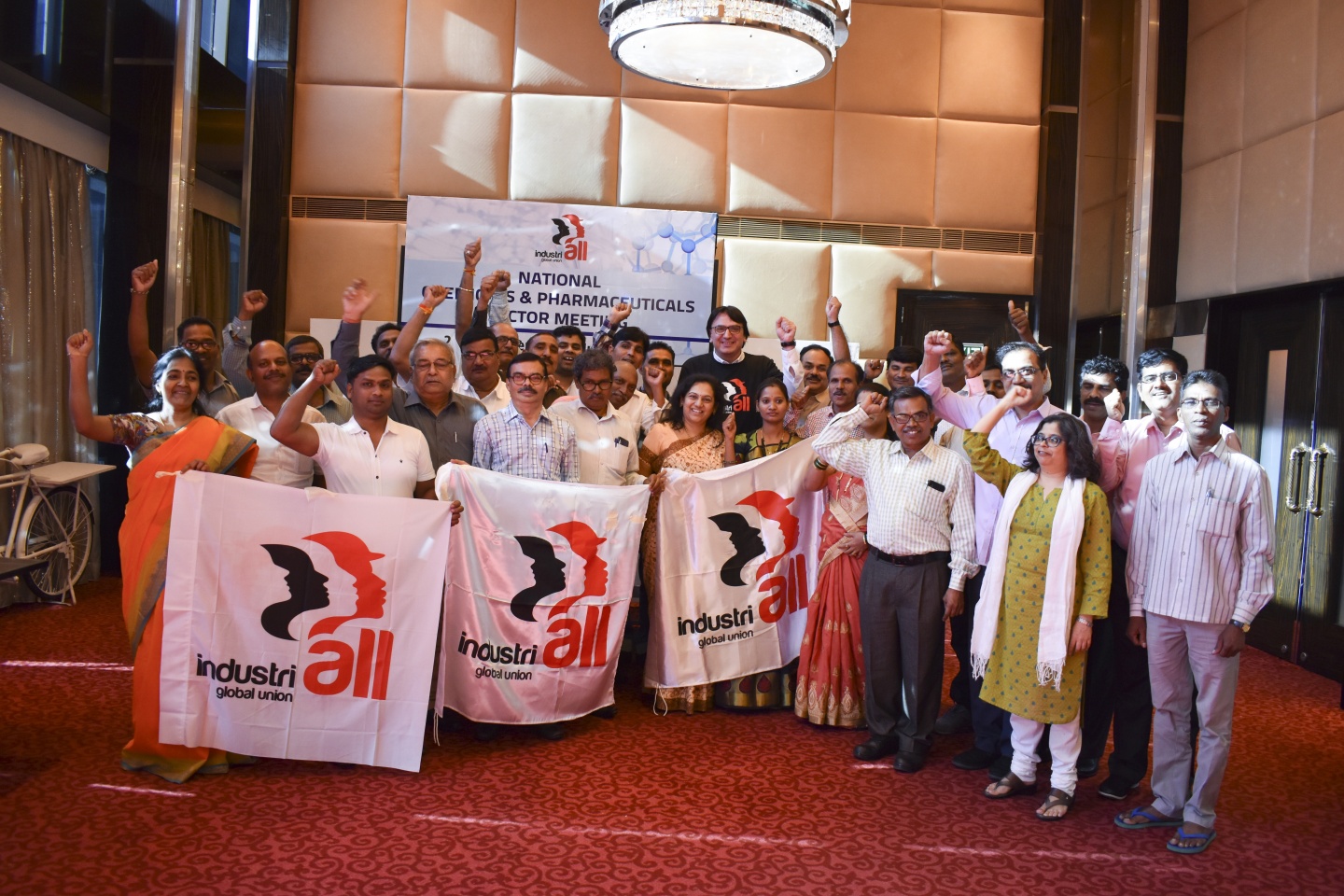Read this article in:
English
21 December, 2018Meeting in Mumbai, India on 20 December 2018, IndustriALL Global Union’s Indian affiliates agreed to intensify their union building programme in the booming chemical and pharmaceutical industries in the country.
Making up 13 per cent of total exports, the Indian chemical industry represents 7 per cent of GDP and 13 per cent of the total industrial output with a 12 per cent growth per annum. While the Indian chemical industry constitutes 2 per cent of the global chemical industry, the pharmaceutical industry of the county ranks 4thin volume and 13thin the world in terms of value.
With an objective of attracting entrepreneurs, the Indian Government formed “Special Investments Regions” to promote the investment in the chemical and pharmaceutical industries. These regions have the similar concept of special economic zones (SEZs), industrial parks, free trade and warehousing zones, export oriented units and growth centres.
The participants of the meeting discussed the challenges for trade unions in the chemical and pharmaceutical industries in India. It was noted that there is an extensive domination of local in-house trade unions in the sectors which make workers isolated, fragmented, divided and vulnerable vis-à-vis employers. In parallel, labour relations and collective bargaining emerge to be isolated, and ineffective finally. It was further noted that there is a very limited role for upper-level unions in collective bargaining and social dialogue.
The participants underlined the fact that there is widescale low awareness about rights and interests of workers. There is an increase in precarious employment, such as agency and migrant workers. Serious problems on health and safety as well as excessive working hours were also reported.
Given the lack of information and experience-sharing with neighboring companies on union presence, collective bargaining agreements, wages, bonuses, precarious workers, and occupational health and safety, there is weak labour relations’ system in the chemical and pharmaceutical industries. The participants reported that company policies such as productivity, efficiency, employer’s rights, disciplinary sanctions and punishments against workers turned to be main provisions of the collective agreements. With the push by employers for “give and take”, there is deterioration in the essence of negotiation in general.
IndustriALL has two affiliates in the chemical industry, namely Chemical Mazdoor Federation of India (CMFI) and BASF India Workers’ Federation (BIWF). The latter was recently formed covering five plants of the German-based chemical company BASF located in Mangalore, Mumbai, Anakelshwar, and Chennai.
The meeting agreed to increase unity in the chemical and pharmaceutical industries in India with a plan of action. This includes increasing union density in already-unionized workplaces, organizing non-union plants of the companies where there is already union presence in other plants, and targeting selected multinational and Indian-based companies for union organizing. The objective is to form an IndustriALL conference for the chemical and pharmaceutical sectors as a platform to bring together representatives from all the target companies.
“India is a strategically important country for manufacturing industries, particularly chemical and pharmaceutical industries,” said Kemal Özkan, IndustriALL’s assistant general secretary.









